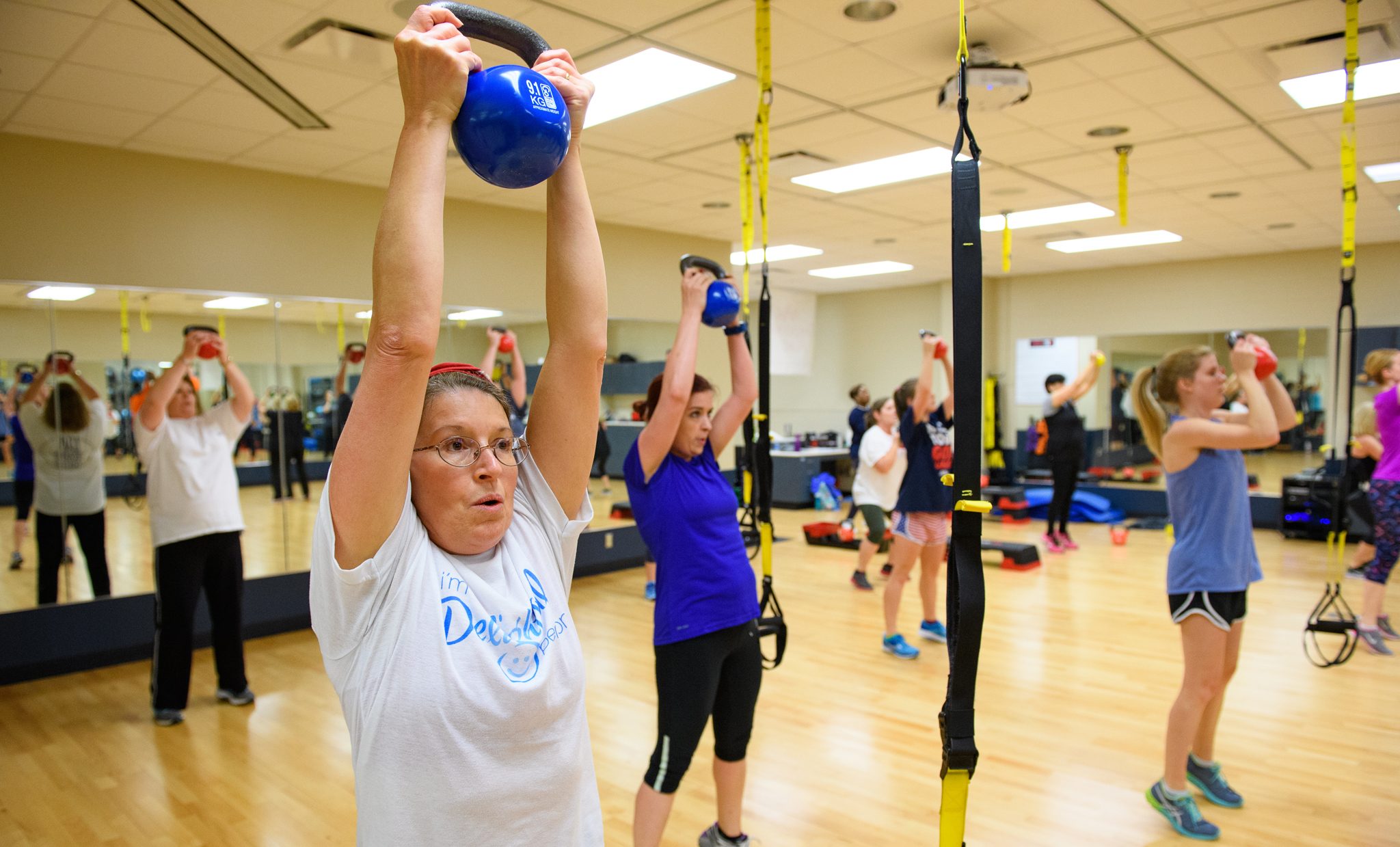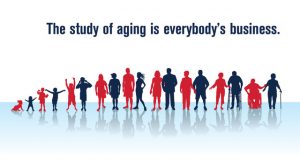
RebelWell participants of all ages lift kettlebells to improve strength and cardiovascular health at the University of Mississippi. The new UM Department of Applied Gerontology emphasizes healthy aging means a lifetime of healthy living. Photo by Robert Jordan/Ole Miss Digital Imaging Services
OXFORD, Miss. – Gray is the new black, according to Reuters.
Recent studies have shown a surge in the American aging population has resulted in a new, booming industry: gerontology.
“By 2050, one in five Americans will be over age 65, while the younger population is projected to continue shrinking, resulting in a critical need for more highly skilled practitioners who are able to manage the aging public’s wide array of needs across industries, such as health care, law, business, finance and public policy,” said Teresa Carithers, interim chair of the University of Mississippi’s new Department of Applied Gerontology.
The School of Applied Sciences debuted the Bachelor of Science in Applied Gerontology last fall, but the board of trustees of State Institutions of Higher Learning only recently approved full department status. The new department is poised to take on the challenge of training tomorrow’s practitioners who specialize in healthy aging across the spectrum and the lifespan.
Carithers invites anyone still considering academic majors or minors to take a serious look at what this future-focused program has to offer students interested in the opportunities of addressing challenges the nation faces as demography shifts.
“People are living longer, more active lives, and applied gerontology majors and minors will engage with faculty from many different disciplines through interprofessional academic and experiential offerings that prepare them to help citizens live the dynamic lives they want, for as long as possible,” she said.
“Our program will be innovative in addressing critical preparation, recruitment and retention issues presenting enormous national challenges within the interdisciplinary, long-term care workforce through education and training initiatives. We will use targeted technological innovations to better equip our graduates to be leaders in the field of aging for future generations to address the population shift resulting in larger numbers of adults versus children in all communities across the nation.”
 Besides general education requirements, students who pursue the B.S. in Applied Gerontology take related courses in communication disorders, advanced composition, nutrition and hospitality management, sport and recreation administration, exercise science and general business. Students will learn about the legal environment as it applies to an aging population, human behavior and the social environment, and aging in the 21st century.
Besides general education requirements, students who pursue the B.S. in Applied Gerontology take related courses in communication disorders, advanced composition, nutrition and hospitality management, sport and recreation administration, exercise science and general business. Students will learn about the legal environment as it applies to an aging population, human behavior and the social environment, and aging in the 21st century.
Students also must elect a recognized minor or second major to help them specialize in an area related to their career aspirations.
“I chose gerontology because I want to specialize in geriatrics in the medical field,” said Annabelle Deen, a junior applied gerontology major from Tyler, Texas. “I have also always had a special connection with older people.”
Marcia Cole, lecturer and director of internships and community engagement for the School of Applied Sciences, is responsible for coordinating the required, 400-clock-hour internship experience that gives students opportunities to apply the skills they’ve learned in the classroom to the specialty area of their choice. They work under the supervision of a faculty adviser and professional in the field.
“This is where theory meets practice,” Cole said. “Our students will interface with professionals who are currently working in the field, along with members of the aging public. Practical, real-world experience and observation are so important in our field, because students will be able to enter the workforce or graduate programs with a deeper understanding of the changing face of aging.
“Not to mention, it looks incredibly good on a resume to say you have applicable work experience before graduation.”
The Department of Applied Gerontology is developing a fully online undergraduate minor and online Master of Science in Applied Gerontology to submit to IHL within the year.
For more information about applied gerontology, visit http://gerontology.olemiss.edu/ or call 662-915-7900.
The School of Applied Sciences, home to the Department of Applied Gerontology, offers professional preparation programs that integrate academic study, clinical training, creative research, service-learning and community outreach, leading to the development of leaders whose professional endeavors will improve health and well-being.